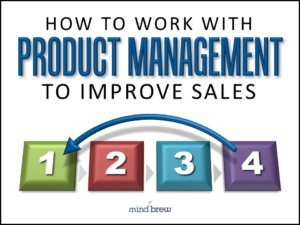If you’ve ever spent a couple of hours with children at Chuck E. Cheese (or similar establishments), you know that a quick game of Whack-A-Mole, can be a great way to relieve stress brought on by noise and chaos.
But when you’re in B2B sales operations, whack-a-mole is a terrible strategy for improving sales processes.
What do we mean by a whack-a-mole strategy?
At any organization, perceived problems and new industry trends are popping up all the time. Sales ops teams following a whack-a-mole strategy rush over to tackle one issue only to discover that three new things have cropped up in the meantime. Many sales operations teams focus so strongly on handling these day-to-day tactical issues as they arise that they forget to make time to think strategically.
So what’s the solution?
It helps to view your sales process as an interconnected system. In fact, your sales process is not all that dissimilar from a manufacturing process in a factory. At one end, the raw materials go in—for sales ops, that’s sales leads. At the other end finished products—in this case, successful sales—come out. In between are several discrete steps in the process, each one building on the other. These individual steps will look different at different types of companies, but common steps might involve the initial contact, comparison shopping, a demo, a price quote, etc.
In a typical B2B organization, everyone remotely related to sales has an opinion about where within these steps the sales process is breaking down. However, a sales ops department that takes a more strategic, systems view will actually measure what is happening. At each step along the way, a few of the leads are dropping out. Strategic sales ops teams count how many drop out at each step and keep track of how long it takes to move leads from one step to the next. And they experiment with small tweaks that affect these individual steps and measure the impact. They stick with the changes that lead to positive results and discard the ones that don’t.
This sort of data-driven optimization frees sales ops from the need to play whack-a-mole and leads to quantifiable improvements over time. In addition, it immediately alerts the team when things are going wrong in one stage. And when someone comes to you with an anecdote about a perceived problem or need, you can look with them at the data to see if the issue actually exists.
Of course, becoming a more strategic sales operations team isn’t something that happens overnight. To find out how to get started, check out the webinar “How to Optimize Your Sales Funnel.”












